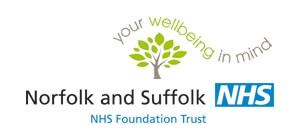Reasons to Stay Alive by Matt Haig review – one man’s battle with depression
Source – The Guardian

With one in five people now suffering from depression at some point in their lives, the miasma that lingers over public discussions of mental health seems increasingly anachronistic, and makes books like Matt Haig’s anatomy of the depression and anxiety from which he suffered between the ages of 24 and 32 all the more timely.
A self-confessed “party person” in his youth, Haig was blindsided by his first bout of depression while pursuing a hedonistic lifestyle in Ibiza. He describes the physical onset of his symptoms as an “intense flickering” in his head, “as though a butterfly was trapped”; by the time he returned home, even a trip to the cornershop had become a source of paralysing terror.
Haig describes his symptoms as an ‘intense flickering’ in his head. A trip to the cornershop became a source of terror
While the seriousness of his condition is never in doubt, a wry humour pervades Haig’s writing: a list entitled “Things you think during your first panic attack” is followed by a list of “Things you think during your 1,000th panic attack”; other lists take subjects such as “Things people say to depressives that they don’t say in other life-threatening situations” and “Things that have happened to me that have generated more sympathy than depression” (notably eczema, living in Hull in January and consuming a poisoned prawn).While recognising depression and anxiety as illnesses, Reasons to Stay Alive also makes a case for linking their increased prevalence to the broader malaise of modern society: afflicted by what David Foster Wallace described as “an anxiety relievable by purchase”, Haig observes that “to be calm becomes a kind of revolutionary act”.
What worked for Haig were things at the non-clinical end of the spectrum: literature, love, running, yoga, travel and, ultimately, time. Medication is discussed briefly; notable by its absence is any discussion of therapy, presumably an avenue Haig did not himself explore. Among the most affecting passages in the book are three “Conversations across time”: dramatised exchanges in which “Now Me” reassures “Then Me” that the fire in the brain will burn out and life will once again be full of promise.
Reasons… is not really a self-help book as that term is commonly understood; instead, it is an intensely individual, creative response to a period of profound crisis, and an account of what pulled one man back from the brink. The solutions it identifies are necessarily partial and personal, but are intended, Haig suggests, to give hope to others of identifying their own

